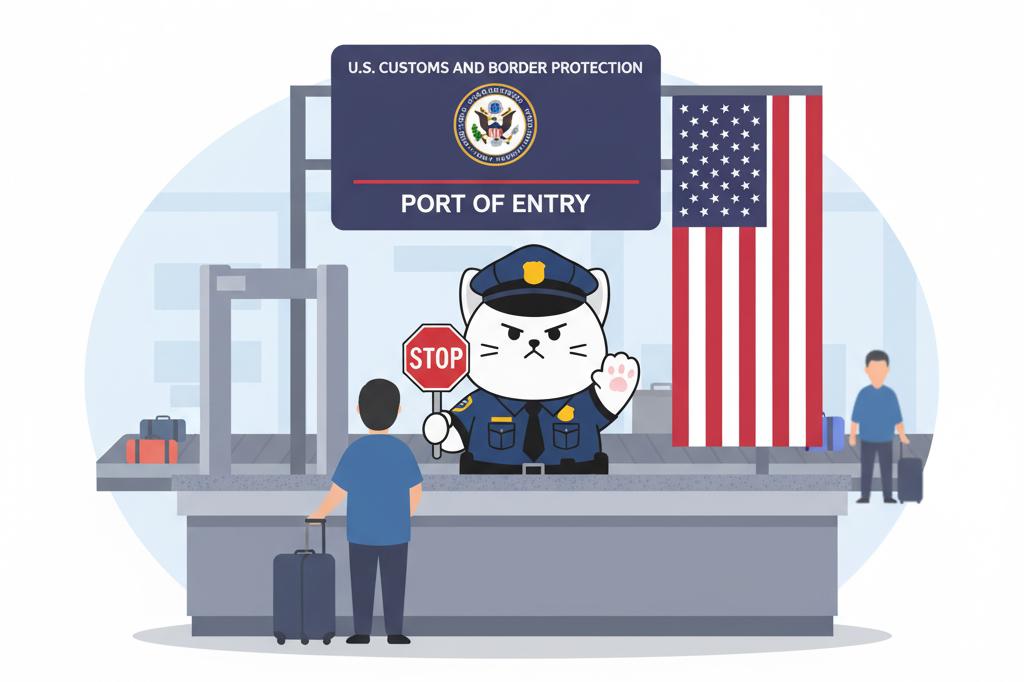
U.S. Social Media Screening Mandate for Student Visa Applicants
Categories: Data, Data Privacy, Digital Footprint, Government, Policy, Social Media, Social Media Management
All foreign nationals applying for student and educational visas must now undergo social media and online presence vetting. According to a leaked cable obtained by POLITICO, consular officers are now directed to scour the internet for signs of what they deem as “hostility towards the citizens, culture, government, institutions or founding principles of the United States.”
As early as April, rumors of social media vetting for immigrants traveling to the U.S. were circulating. This was followed by a pause in visa interviews, particularly affecting international students. That pause marked the start of a new norm: mandatory digital screening as part of the student visa process.
New Social Media Rules for Visa Applicants
Accoring to POLITICO, U.S. consular staff are instructed to:
- Unlock social accounts and review all publicly available content
- Flag political activism, especially if it involves support for Hamas
- Note any antisemitic harassment or violence, even from years ago
- Identify content critical of U.S. policy that could signal national security threats
- Take screenshots and document everything for internal records
This new directive puts heavy emphasis on what applicants have posted online, particularly anything that challenges U.S. values or aligns with controversial or extremist narratives.
What Kind of Content Could Prevent Entry to the U.S.
Over time, your opinions and perspectives on various policies, governments or world events is likely to change and evolve. This is why digital “pipelines” exist for political leanings – they tend to develop over time.
Maybe you attended some protests, critiqued some foreign policy, or shared some activist content on your socials. Under the new rules, this content could trigger investigations, delays or denial of your entry to the U.S. The information from POLITICO states that no “single post” will result in automatic disqualification – but the language is loose, and how it will be applied isn’t completely clear.
In the event of an approved, or denied application – screenshots and notes will be preserved – but we don’t know how they’ll be shared, stored, accessed, or what they’ll be used for in future.

Social Media Vetting Will Only Become More Common
In the space of a few months, your social media presence has become a critical factor to determining whether or not you can enter the U.S.
As early as 2020, the Department of Homeland Security and the FBI began expanding efforts to surveil the social media presence of citizens and non-citizens for the purpose of tracking protest movements, religious expression, and political dissent. The current developments for Visa applications
In 2021, Knight Columbia (free speech advocacy group) explained how federal agencies were steadily expanding their capacity to monitor, archive, and analyze online speech. Even then, this often targeted immigrants, travelers, and activists.
Multiple government agencies, including ICE, have a long history of using ethically contentious social media surveillance tools like SocialNet.
Manage Your Digital Presence Before Someone Else Does
With online posts being scrutinized as part of a public review, students and applicants are urged to clean up their digital presence before applying. Even seemingly harmless or outdated content can raise red flags under the new screening policy.
Redact helps you find and remove that content fast. Whether it’s old tweets, Reddit posts, Discord messages, or political debates you once participated in, Redact gives you full control.
Start with these steps:
- Visit Redact.dev and download the app for free.
- Connect your social accounts securely.
- Use keyword filters and date ranges to pinpoint risky content.
- Review and delete in bulk – safely, privately, and effectively.
You can try Redact.dev for free to start deleting old Facebook, Twitter, Reddit and Discord content that no longer represents your current ideals.